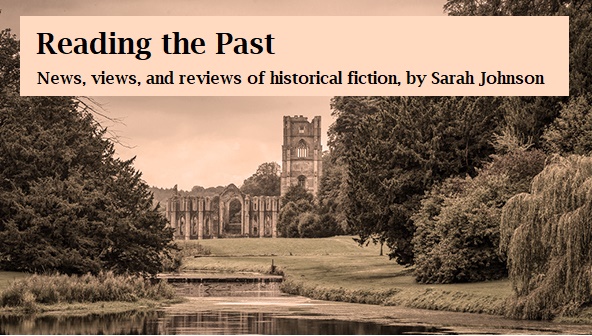It was an innocuous-seeming mention, with no major library-bashing going on, but it still caught the attention of this librarian. I understand that authors depend on sales for their livelihood, and that they don't get royalties or any remuneration when a library copy gets borrowed, at least not in this country. There are financial issues involved here.
Yet I can't help but wonder about the alternatives. Should libraries not buy their books? Or, if libraries do buy the books, would authors prefer that nobody borrow and read them? More and more publishers are setting up library marketing departments these days (and if you were a librarian at BEA in NYC this year, and stayed at the official librarians' hotel, you'd know the trouble they're taking to woo us. I've been attending BEAs for the past 6 years, and things have really changed in this regard. For the better, imho). I'm getting the impression, anyway, that library sales are becoming more important to publishers.
Libraries not only purchase historical fiction titles regularly, and lots of them, but they actually prefer to buy a given novel in hardcover if there's a choice... which means higher royalties for the author. And, if the waiting list for a book is really long, libraries will often buy multiple copies to satisfy demand. Of course, this isn't the same, sales and royalty-wise, as having each patron on that list buy his or her own copy, but I'm not sure how realistic that is.
When we're talking about historical fiction in series, the circulation of the first volume, and positive word-of-mouth from patrons who've read it, can convince librarians that it's important for them to buy future volumes as well. The same goes for patrons' buying habits. As an example, I read Rett MacPherson's first novel from a library copy. (She writes cozy genealogy mysteries, if you're curious. They're lots of fun and totally addictive... I've covered them for NoveList several times now.) Now I order the hardcovers from Amazon as soon as they're published. I don't want to wait for interlibrary loan... I want those books in my hands as soon as possible.
Libraries also take requests. We have a purchase suggestion form on my library's website. If we get a request from someone who's part of our community, chances are good we'll buy the book. That's one more sale... a good thing for everyone involved.
Yes, I am probably taking the results of a tongue-in-cheek exercise out of proportion (I'm just another of those humorless librarians, yanno). But I think it's an issue worth considering, as we're all on the same side. And I'd like to think that libraries who buy novels, and people who read those copies, are not really such a horrible thing for an author to hear about.










I so disagree with this author. I will often try a new author in a library first, or as a cheaper used book. If I like the author, just as you said, he or she can become an auto-buy for me. I think libraries are nothing but an author's friend.
ReplyDeleteI disagree with the author too. Better that a book is being read in a library than sitting on a remainder shelf somewhere! I've heard authors also complain about readers buying their books used--but if I buy a used book and like it, I'm likely to buy subsequent works from that author new.
ReplyDeleteI also disagree with the author. I can't afford to buy too many hardcovers (nor do I have the space)and it can take a year for a book to come out in paperback, so if an author is new to me, I'll take the book out of the library. If it turns out I like that author, than I will automatically buy the next book the author writes. I would never have read so many wonderful books that were out print growing up if it hadn't been for the library.
ReplyDeleteI hope the comment was tongue-in-cheek. A library copy will be read by dozens, scores, even hundreds of readers in its lifetime, whereas a purchased copy may only be read by one or two (or never read at all). Libraries also stock titles for much longer than bookstores, meaning that readers who hear about a book several months or years after publication can still get hold of a copy. And how many of us got hooked on reading at a library?
ReplyDeleteSeeing as there were many other things on the list that I'd honestly hate hearing, as an author ("when are you going to write a REAL book?"), I'm not actually sure it was completely tongue-in-cheek! But the library appearance on the list may have been, imho, a little short-sighted.
ReplyDeleteI take it, therefore, that you don't have anything like the Public Lending scheme in the USA? It works pretty well in the UK: a major author can get several thousand pounds a year from a (very rough) estimate of the number of times his or her books have been borrowed from public libraries. Doesn't include university libraries, I think. See details.
ReplyDeleteNo, there's nothing like the Public Lending scheme in the USA. Would be nice if there were, but realistically I don't see it ever happening.
ReplyDeleteI'm an author whose main publisher is Robert Hale Ltd UK - a hardback publisher for libraries.
ReplyDeleteI wouldn't have two books published if it weren't for publisher's like Robert Hale.
Myself, I love libraries and so does one of my sons and my daughter.
I have found so many wonderful authors and their books via the library, and I know the world would be a sadder place without them.
I think libraries are a great way for authors to introduce their works to new readers who probably would not have bought their book otherwise. They could also benefit by a possible sale and/or referal later on which would lead to higher book sales for that author. Long live libraries!!!
ReplyDelete